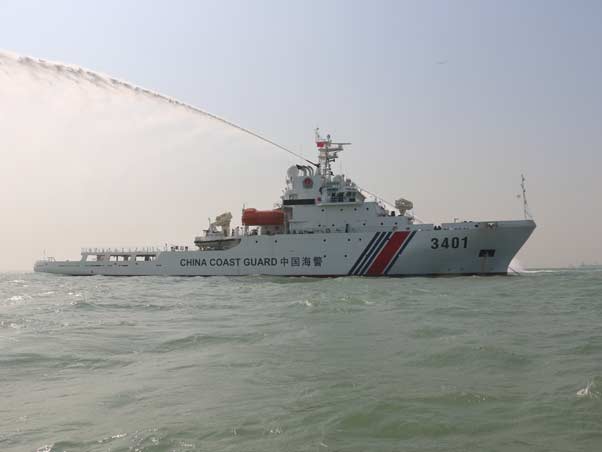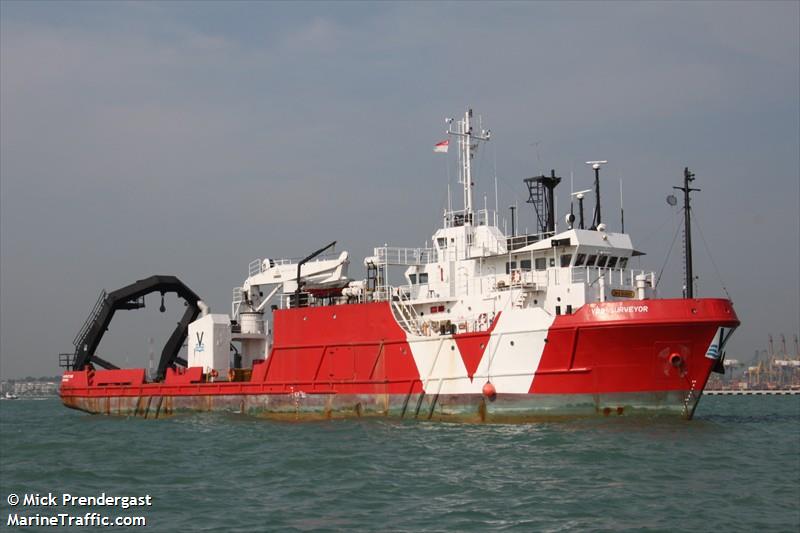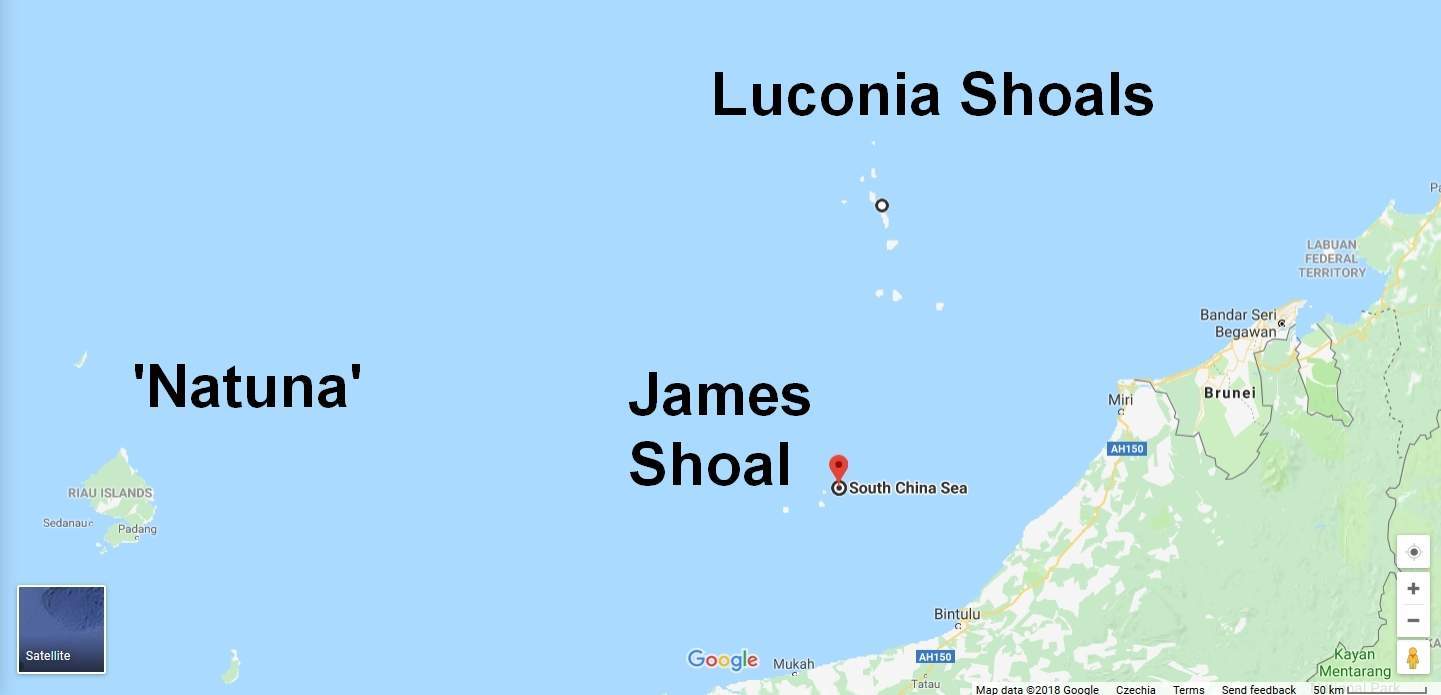No One Lost the South China Sea (And No One Will)
As we all see, the situation in the South China Sea is cooling down, and the biggest variable is the emerging Sino-U.S. maritime strategic competition. There have been three major views, all of which stem from anxiety, in the western strategic sphere recently on this issue, namely, the so-called
, U.S. fecklessness and China’s control of the South China Sea with at the cost of others’ interests. That would contribute to much of China-lashing rhetoric these days. In my observation, all the above points are biased to some degree.
No one lost the South China Sea and no one will. Firstly, no power including China and the United States has the capacity to control the South China Sea regardless its intentions, as we are living in a world where power is more balanced. It’s true that China has made great strides in terms of military modernization and increased power presence, but other South China Sea littoral states and outside powers such as the United States are all strengthening their power presence and military deployments in the region as well. In the foreseeable future, it’s difficult to imagine that China or any other country could achieve predominance in the South China Sea." data-reactid="27" style="margin-bottom: 1em;">No one lost the South China Sea and no one will. Firstly, no power including China and the United States has the capacity to control the South China Sea regardless its intentions, as we are living in a world where power is more balanced. It’s true that China has made great strides in terms of military modernization and increased power presence, but other South China Sea littoral states and outside powers such as the United States are all strengthening their power presence and military deployments in the region as well. In the foreseeable future, it’s difficult to imagine that China or any other country could achieve predominance in the South China Sea.
Secondly, when we talk about sea power and sea control in our current times, it just means relative influence and comparative advantage in some maritime areas, because today’ sea power is definitely an inclusive system rather than exclusive one. With China’s rise, it is increasingly difficult for the United States to impose the Mahan doctrine on China in the South China Sea; and no matter how far China develops, it is not likely to pursue so called “maritime hegemony,” given United States’ powerful forces in and around the South China Sea. After a long term competition, both sides will finally find out that there is no choice but to establish a common and inclusive security order with ASEAN Member States and other stakeholders." data-reactid="28" style="margin-bottom: 1em;">Secondly, when we talk about sea power and sea control in our current times, it just means relative influence and comparative advantage in some maritime areas, because today’ sea power is definitely an inclusive system rather than exclusive one. With China’s rise, it is increasingly difficult for the United States to impose the Mahan doctrine on China in the South China Sea; and no matter how far China develops, it is not likely to pursue so called “maritime hegemony,” given United States’ powerful forces in and around the South China Sea. After a long term competition, both sides will finally find out that there is no choice but to establish a common and inclusive security order with ASEAN Member States and other stakeholders.
The foremost American problem is not that it has not done enough, but that it has done too much in the South China Sea. The U.S. officials and experts are always criticizing China’s militarization in the South China Sea, but never mention the increasing radical actions of U.S. forces there. Every year, the U.S. military would carry out hundreds of military exercises and thousands of close reconnaissance missions in the South China Sea. Since May 2017, U.S. warships have entered twelve nautical miles of islands and reefs stationed by China more than ten times already, conducting a series of provocations like high-speed zigzag and electronic jamming, which poses a huge threat to the sovereignty and security of China and Chinese people on these islands and reefs." data-reactid="39" style="margin-bottom: 1em;">The foremost American problem is not that it has not done enough, but that it has done too much in the South China Sea. The U.S. officials and experts are always criticizing China’s militarization in the South China Sea, but never mention the increasing radical actions of U.S. forces there. Every year, the U.S. military would carry out hundreds of military exercises and thousands of close reconnaissance missions in the South China Sea. Since May 2017, U.S. warships have entered twelve nautical miles of islands and reefs stationed by China more than ten times already, conducting a series of provocations like high-speed zigzag and electronic jamming, which poses a huge threat to the sovereignty and security of China and Chinese people on these islands and reefs.
The United States’ excessive involvement in the South China Sea has forced China to deploy more defensive equipment there, and made more and more Chinese people realize the hypocrisy of the United States. Frankly speaking, should there not been the U.S. intervention, China would not have the need to take above-mentioned countermeasures ." data-reactid="40" style="margin-bottom: 1em;">The United States’ excessive involvement in the South China Sea has forced China to deploy more defensive equipment there, and made more and more Chinese people realize the hypocrisy of the United States. Frankly speaking, should there not been the U.S. intervention, China would not have the need to take above-mentioned countermeasures .
The second problem of the United States is its overly ambitious goal. Even now, the United States has not recognized the strategic significance of the changing balance of power in China’s favor. As long as China maintains its current momentum, no matter what the United States does, China will form a relatively balanced strategic posture with the United States in the South China Sea. With the United States declining strength advantage vis-a-vis China, the United States should learn the value of compromise and how to accept China’s legitimate interests; otherwise, the United States will fall into the abyss of endless troubles and anxiety." data-reactid="41" style="margin-bottom: 1em;">The second problem of the United States is its overly ambitious goal. Even now, the United States has not recognized the strategic significance of the changing balance of power in China’s favor. As long as China maintains its current momentum, no matter what the United States does, China will form a relatively balanced strategic posture with the United States in the South China Sea. With the United States declining strength advantage vis-a-vis China, the United States should learn the value of compromise and how to accept China’s legitimate interests; otherwise, the United States will fall into the abyss of endless troubles and anxiety.
Therefore, that China will control the South China Sea is not a serious statement but a rumor and excuse to create panic and pressure on China. In the context of the continuing stability of the South China Sea thanks to the joint efforts of China and ASEAN Member States, it is unwise to stir up rumors and agitate for more U.S. radical measures. After all, the South China Sea is regarded as “the strategic corridor between the Indian and Pacific Oceans,” if the disputes between China and some ASEAN Member States, and Sino-U.S. power competition in the South China Sea are out of control, the whole world, particularly countries in the Asia Pacific, will lose." data-reactid="42" style="margin-bottom: 1em;">Therefore, that China will control the South China Sea is not a serious statement but a rumor and excuse to create panic and pressure on China. In the context of the continuing stability of the South China Sea thanks to the joint efforts of China and ASEAN Member States, it is unwise to stir up rumors and agitate for more U.S. radical measures. After all, the South China Sea is regarded as “the strategic corridor between the Indian and Pacific Oceans,” if the disputes between China and some ASEAN Member States, and Sino-U.S. power competition in the South China Sea are out of control, the whole world, particularly countries in the Asia Pacific, will lose.








